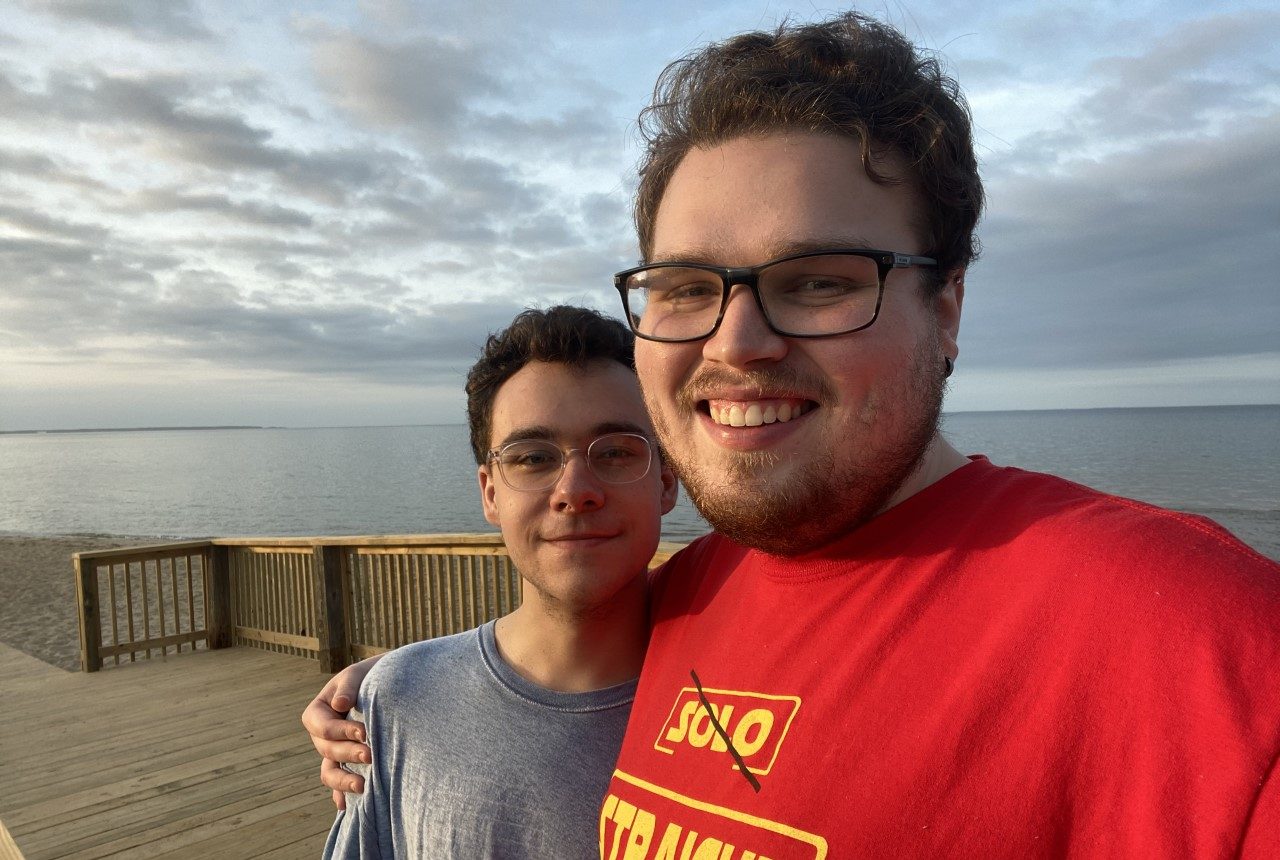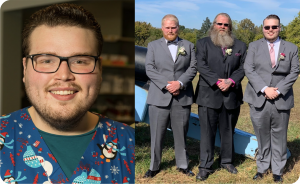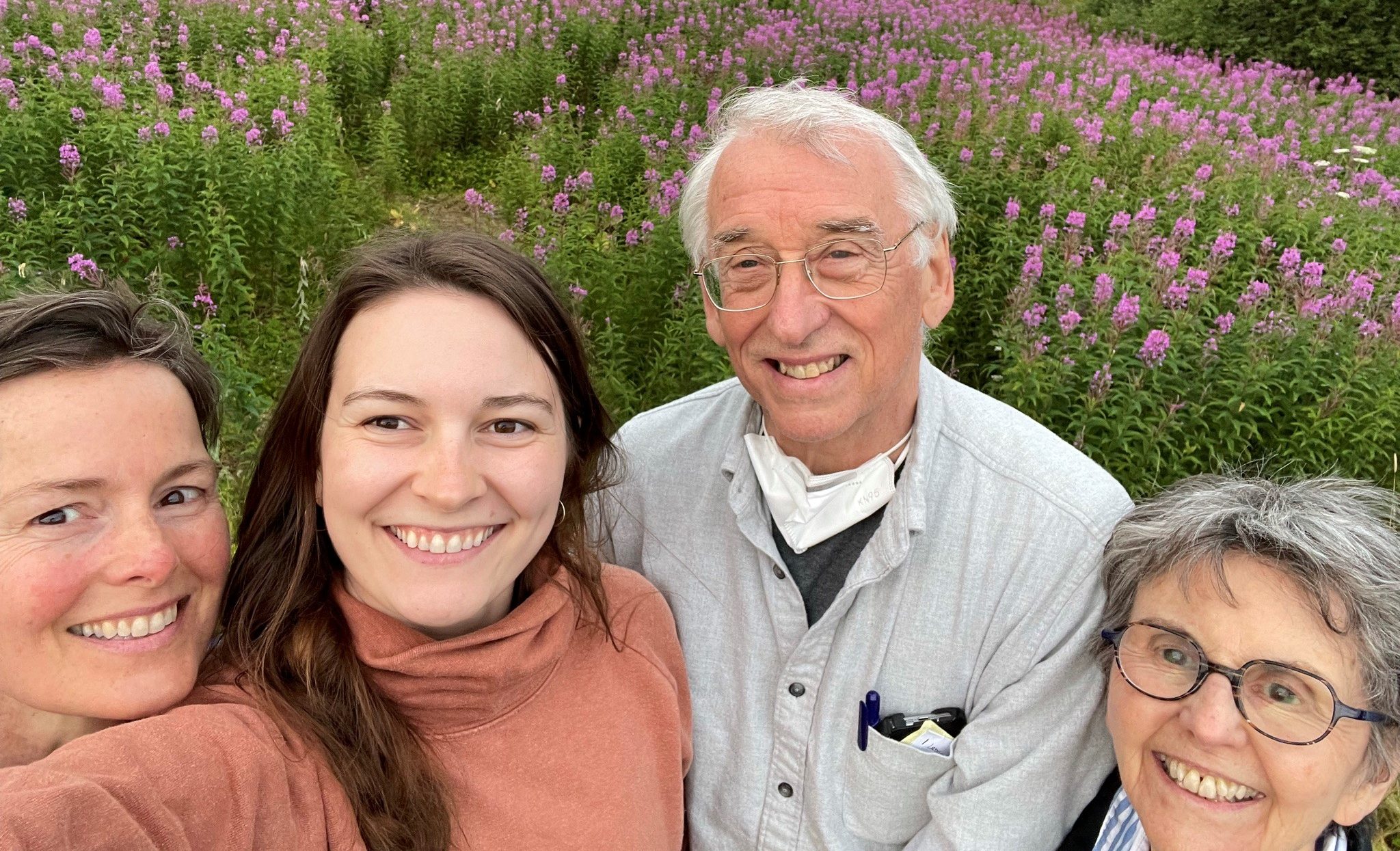Finding the Strength to Persevere: A 5-Year Struggle with Chronic Myopericarditis
17 Apr 2023 • 5 minute read

Five years ago, Newell Rand, aged 23, was diagnosed with chronic myopericarditis after a series of incorrect diagnoses: “The biggest motivation for me is being able to inspire others.”
Chronic myopericarditis was not on 18-year-old Newell Rand’s mind. Newell had just started to make his mark in the world; he was a healthy high school senior in Great Mills, Maryland who loved exploring the outdoors. But in 2017 following 3-4 days of feeling unwell with brain fog, extreme fatigue, and unexpected chest pains, he was encouraged by his mother to visit a doctor, “My mom said, ‘that’s not normal’, and you know, mothers know best.” Little did he know, this marked the beginning of Newell’s long journey towards understanding what was wrong with him.
When he arrived at the local hospital in his small county the doctors performed an electrocardiogram (EKG), which was normal, and they subsequently ran a troponin test (a blood test that measures a protein released from the heart when it has been damaged), which at first was believed to have resulted in a false positive. Newell recalls, “At this point they were still not convinced something was wrong with me.” Luckily, the doctors decided to run the troponin test for a second time; the results showed a doubling of troponin and immediately they knew something was wrong. The doctors advised Newell they were not equipped to accurately diagnose his condition and instructed him to visit a hospital 60 miles north in Washington, DC for further testing.
Experiencing all of this as a young adult, Newell couldn’t believe this was real life and that something like this could happen to him, “I didn’t understand what was going on with me. I was thinking, I’m young and shouldn’t be in a hospital bed.” Despite not having an official diagnosis for his symptoms at this point, and even after a cardiac MRI showing a borderline reduced ejection fraction as well as elevated troponin and NT-proBNP (which he did not find out until later), Newell persisted in his quest to get a diagnosis. Although he was prescribed a drug for the initial 3 months after his first hospital visits, he was still not feeling well. Newell was frustrated with the lack of willingness from doctors to spend the time researching and trying to understand what was happening with him: “I really wanted somebody that’s actually going to listen to me because I just felt like I have been dismissed multiple times.” In the face of adversity, Newell took it upon himself to advocate for his health instead of blaming it on others, “I started blaming the doctors instead of looking inward and saying, I have to advocate for myself because nobody else is going to do it for me.” It took over three years and multiple visits to various hospitals for him to finally receive a diagnosis of chronic myopericarditis, a rare inflammatory condition that affects the heart muscle and the outer lining of the heart. His initial reaction was utter shock and fear, although a diagnosis was a relief to him, as it meant that he finally had a starting point which he could begin treatment to potentially help him feel better.

Myopericarditis is a heart condition that affects your heart muscle and the protective sac around your heart. Your heart muscle is your myocardium. An inflamed myocardium is called myocarditis. Your heart’s protective sac, or pericardium, can get inflamed, too. That’s pericarditis. Depending on which predominates, the term myopericarditis or perimyocarditis is used; either can be mild to severe.
Not only did the physical symptoms of this rare disease take a toll on Newell’s life, but the emotional challenges that resulted from his condition were something he was not equipped to deal with as a young man. Over the years, Newell has experienced a lot of anxiety and fear, which has transformed his life. Early in his journey, he constantly questioned why he was fortunate enough to survive when others weren’t as lucky, “Could I have died from this? And if I could have died from this, why didn’t I? Why do some people die from it, but I didn’t?” After his feelings of guilt subsided, all Newell could feel was anger. He was angry something like this would happen to him and felt depressed for months, “I almost feel, to some degree, that my adult life has been robbed by it.” Despite this, Newell is staying positive. With a strong support system around him of friends and family, Newell was able to understand his anger and come to terms with living with myopericarditis.
Newell continues to have challenges with physical activity (chest pains) and experiences depression and anxiety at times. In recent years, he had a lot of anxiety about COVID-19 and the fear of getting sick. The physical limitations have also hampered Newell’s career plans to be a veterinary technician. He experiences a low level of chest pain 50-60% of the time, ongoing fatigue and occasional low-grade fevers that may be associated with his heart inflammation. “I feel like I will never get back to where I was.” Currently, Newell is prescribed drugs not specifically indicated for his condition, but they do help him with symptom management.
What keeps Newell motivated is his ability to share his story with the hopes of inspiring others and better equipping them with the knowledge he has developed over the years. His advice to those individuals who are struggling, or those who have been recently diagnosed with a heart condition, “Keep living. Keep going to see your doctors. Keep taking the treatments prescribed if they are helping you. At some point you will get better… Keep pushing for answers and do not be afraid to get a second opinion. Do your research. Go find support groups to connect with others with similar conditions.”
Newell’s journey emphasizes the importance of persistence in seeking a diagnosis for a rare health issue. It also shows the importance of being a self-advocate and pushing for answers when doctors are unable to provide them. While Newell’s life has been difficult, it is important to remember that there is always hope for improvement. Newell said it best: “My hope for the future is that when someone gets diagnosed with a similar condition there will be a treatment readily available to them. And for all of us with chronic heart conditions, I hope that there is a treatment that can help us get back to a normal, symptom-free and disease-free life.” With the proper treatment, he may be able to better manage his condition and further improve his quality of life. His story is also an important reminder of the challenges that can come with navigating the healthcare system, and the importance of perseverance in seeking a diagnosis. Newell’s experience highlights the need for continued research into rare conditions like myopericarditis, in order to provide better understanding and new treatment options for those who suffer from them.

Myocarditis Foundation
The Myocarditis Foundation is a voluntary, non-profit organization that is dedicated to providing information about myocarditis to medical professionals, patients and their families, with the goal of saving more lives.

Pericarditis Alliance
The Pericarditis Alliance is a nonprofit organization dedicated to the diagnosis, management, and treatment of pericardial disease through research, education, and support for patients and healthcare providers.


